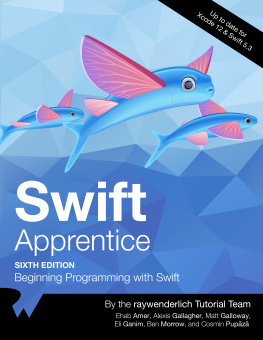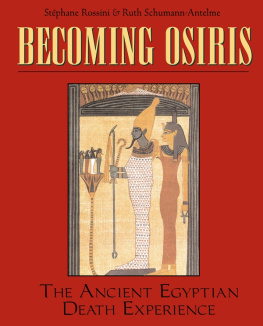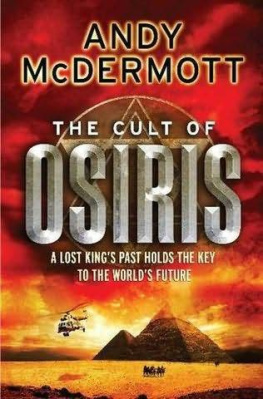E. Swift - Osiris
Here you can read online E. Swift - Osiris full text of the book (entire story) in english for free. Download pdf and epub, get meaning, cover and reviews about this ebook. genre: Science fiction. Description of the work, (preface) as well as reviews are available. Best literature library LitArk.com created for fans of good reading and offers a wide selection of genres:
Romance novel
Science fiction
Adventure
Detective
Science
History
Home and family
Prose
Art
Politics
Computer
Non-fiction
Religion
Business
Children
Humor
Choose a favorite category and find really read worthwhile books. Enjoy immersion in the world of imagination, feel the emotions of the characters or learn something new for yourself, make an fascinating discovery.

- Book:Osiris
- Author:
- Genre:
- Rating:3 / 5
- Favourites:Add to favourites
- Your mark:
- 60
- 1
- 2
- 3
- 4
- 5
Osiris: summary, description and annotation
We offer to read an annotation, description, summary or preface (depends on what the author of the book "Osiris" wrote himself). If you haven't found the necessary information about the book — write in the comments, we will try to find it.
Osiris — read online for free the complete book (whole text) full work
Below is the text of the book, divided by pages. System saving the place of the last page read, allows you to conveniently read the book "Osiris" online for free, without having to search again every time where you left off. Put a bookmark, and you can go to the page where you finished reading at any time.
Font size:
Interval:
Bookmark:
E. J. Swift
Osiris
PROLOGUE
He sits on the balcony with his legs hanging over the edge and his face pressed between two railings. Beyond the bars lies the great vault of the city and its pale roof of sky. He does not see an architectural masterpiece, although there are lines of beauty here that exist nowhere else. What he sees is a maze of luminous shapes, ignited by the sun.
He has spent hours in this space, high in the eyries of Osiris, where gulls and other birds wheel and screech their hunger. Sometimes he stands and leans over and peers into the depths of the morning mist. Other times he perches on the railings, with death at his side like a neighbour. Occasionally he sleeps. The cold is hostile, and he is not dressed to face it. He wakes in the frost, trembling, surprised still to be here.
In the brittle air he feels, acutely, the internal heat of his body battling with the outside draught. His blood pulses, torrid and bright. His heart tattoos a rhythm in his chest. Icy stone pushes against his bare feet. When the storms come, the elements sweep around him in multilingual conference. Rain lashes the windows and his skin, wind claims the moisture back. He has forgotten that he is afraid of storms. He turns his face to the heavens and closes his eyes.
Once, people came and found him here. They spoke to him, and when he was silent they begged him to talk and when he talked their eyes grew strange and harboured clouds. But it has been a long time and the findings are things of the past, things that lie almost beyond the reach of memory. He holds onto only one. He cannot remember her name, but she tumbles through the world: bold, vital and violent. He cannot let her go because she knows no fear.
People still watch, although he is unconscious of their surveillance and the whispers that shroud him. These stories skip along bridges, ride up and down the glass lifts. From unseen lips, they echo in the hollows of a dozen ears. They make good copy. There are episodes when he leaves the balcony, even leaves the penthouse it is attached to, and then the Reef field buzzes and tingles in the keys of many different voices. But days pass, and his expeditions become rarer. He keeps time for the city, watching it dissolve around him.
He knows there is something he has to do. A mystery he has to solve. It is in the water. It is in the ice.
One morning, in the lilac hours before dawn, he lifts his arms as if they are wings. They have spoken at last. It is in the water, he knows it now. He climbs the railings. For a moment he poises, absolutely still. The city is hushed.
But now he hears it. At first barely audible, then louder, as it has been growing these past few months, or even years. Hooves beating on the skin of the waves. They run like streamers in the wind. Foam flies about their salted coats; the horses.
No one is awake to see him fall. His body hurtles earthwards, faster than the diving gulls, faster than a rumour. The air rushes against him. Windows flee his reflection. He crashes into the sea and vanishes instantly beneath the surface, leaving only a faint trace that is quickly gone.
PART ONE
1 ADELAIDE
Adelaide first felt something was wrong in the aftermath of the speech. Her father had voiced the formalities, and now those who remained had the chance to speak to the family. The guests were tentative. They offered their sympathy like a gift, of whose appropriateness and reception they were as yet unsure. Buoyed by weqa or coral tea, a few dared to meet Adelaides eyes, but most looked at the bridge of her nose or into a space over her shoulder. She watched them hunting for the right words. They wanted to say something. Or at least they wanted to be seen to say something. Unfortunately, none of the usual phrases- were so sorry for your loss- were much use. How do you condole for a missing person? How do you grieve?
Her father had managed it very well. It was a month since Axels disappearance, and Feodor had staged this event. He named it a service of hope. The phrase was written out on a diminishing supply of cards, by hand: the Rechnov family invites you to a service of hope for our son and brother, Axel. There was no order of ceremony on the cards, but it was firmly established in Feodors head. First the assembly, with a pianist providing background music. The repertoire was classical; nothing too well-known, or too sentimental. A few words explaining the situation, for protocols sake rather than to fill anybody in. And then Feodors speech.
He spoke adeptly, as he always did, his voice carrying to every nook of the panelled suite. The rooms were quiet and graceful, their walls striped with narrow ribbons of mirror, red cedar and sequoia. Subtle lamps drew out the natural richness of the wood, whose polished surface gathered hazy impressions of those who passed. Other than the ferns and a scattering of tables and chairs, the rooms were unadorned. They were also windowless. Adelaides brothers had hoped that the informality of a small, intimate space would make for a more congenial atmosphere than was traditionally associated with the Rechnovs.
At the walls, security guards stood rigidly enough to be all but invisible. Only their eyes, constantly roving, revealed alertness.
Adelaide had wedged herself into an alcove. The space was wide enough to seat two people, but Adelaide crammed her legs in too, denying anyone else access. Two things separated her further from proceedings: a lace veil covering the upper half of her face, and the fronds of a metre-high fern. From her semi-hiding place, the rooms, full of figures and reflections, did not look quite real. She couldnt help hearing her father though.
Incense and cedar permeated the air. Adelaide hadnt eaten all day; the sweetish smell and lack of food were making her feel nauseous. She loosened her tie and undid the top button of her shirt, and felt a little better.
finally, the family would like to thank you for your continual support and your generous messages. We await news of Axel with anticipation, and as always, with hope. There was a pause. Adelaide knew that Feodor was taking a pinch of salt from a tin and throwing it, in the direction where a window would have been. Thank you, once again.
Syncopated claps rang through the rooms. When the sound died out there was a difficult silence, before murmurs and music recommenced. The service, despite the oration, remained unresolved.
Adelaide stayed where she was and wondered what she should do next.
Feodors speech had already triggered numerous arguments amongst the family. The idea of the service was despicable to Adelaide. Nothing, she knew, would dissuade the family, but she spoke out nonetheless.
Nobody understands Axel, not before and certainly not now. Nothing you can say about him is worth saying.
Those words resounded only a fortnight ago, and they had all been present, sitting around an oval conference table on the ninetieth floor of Skyscraper-193-South. It was neutral ground. Beyond the immense glass window-walls, Osiris lay bathed in a clementine sunset. The citys conical steel towers were burnished gold, and as a flock of gulls swept past the scraper, their wings caught flashes of red as if they were afire. Adelaide paid no heed to the view; she had seen it all her life. Her attention flicked between her grandfather, her parents, and her two other brothers. Dmitris fiancee was not at the table. The Rechnovs were clannish. A matter of blood was a matter for blood.
The meeting was the first time Adelaide had spoken to any of them in months, and she was wary. She seated herself at the south end of the table, deliberately facing everybody else. Her mothers eyes, the same green as Adelaides and Axels, pleaded with her for compassion, or perhaps for leniency. Viviana would try to use the catastrophe as a catalyst for reconciliation. Adelaide folded her arms on the table. The wood was cool on her bare skin, but sweat lined the hollows of her palms. A grain of salt for every harsh word, she thought. For every tear.
Font size:
Interval:
Bookmark:
Similar books «Osiris»
Look at similar books to Osiris. We have selected literature similar in name and meaning in the hope of providing readers with more options to find new, interesting, not yet read works.
Discussion, reviews of the book Osiris and just readers' own opinions. Leave your comments, write what you think about the work, its meaning or the main characters. Specify what exactly you liked and what you didn't like, and why you think so.












